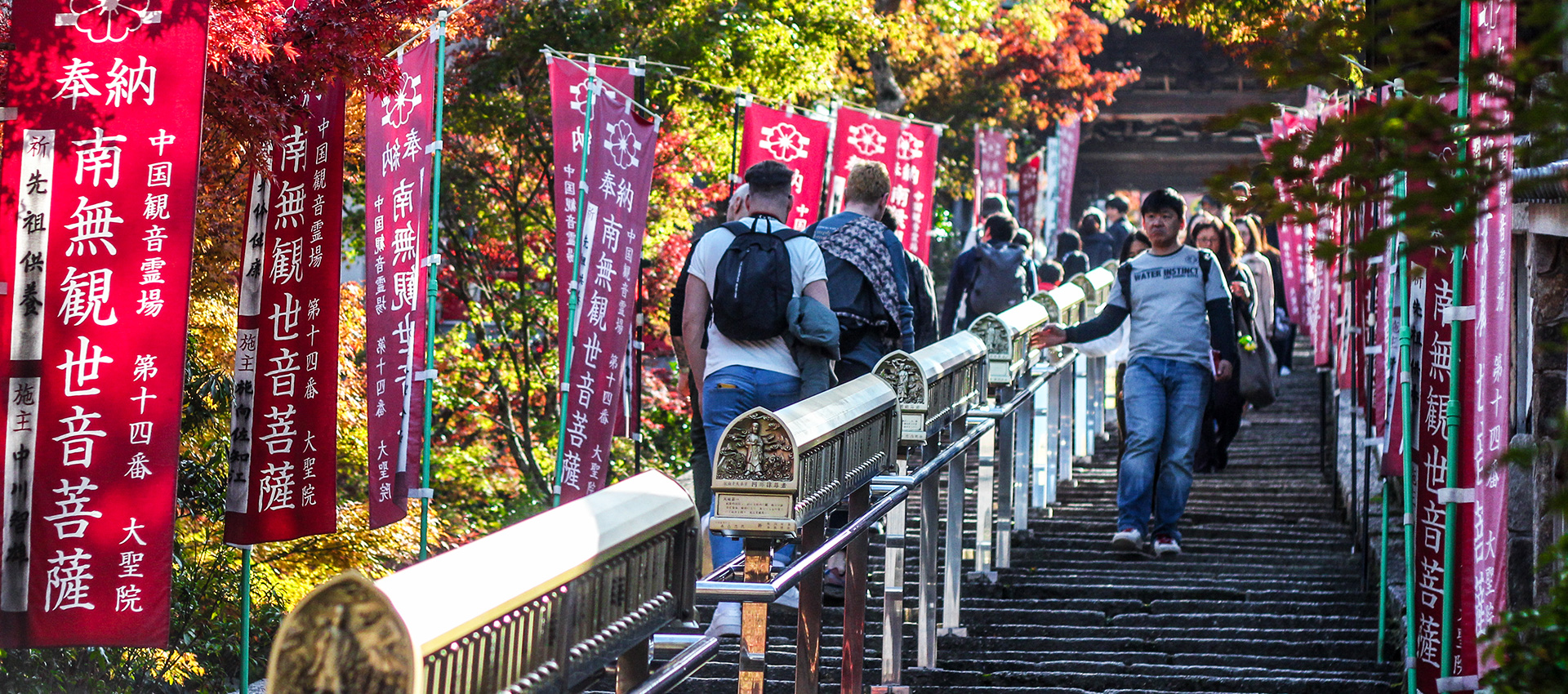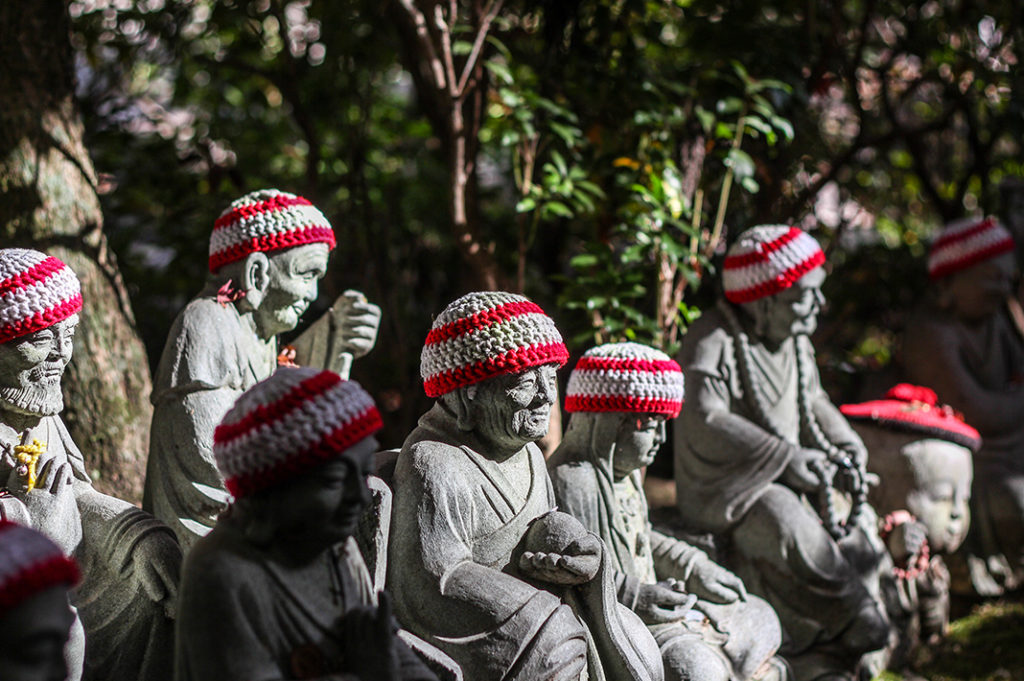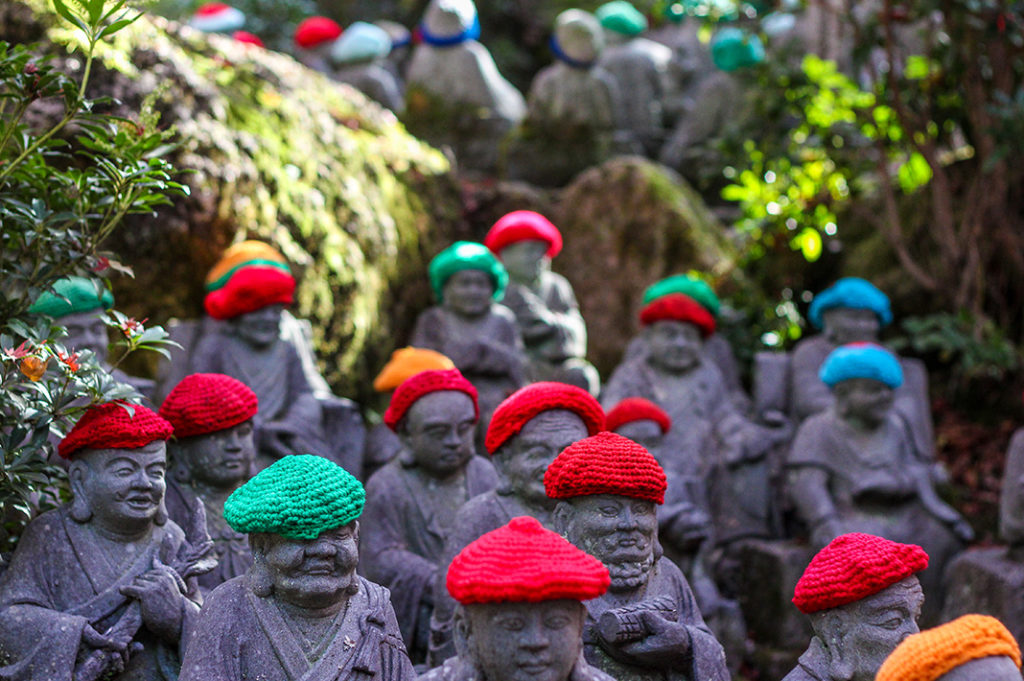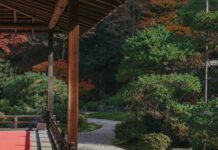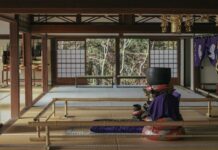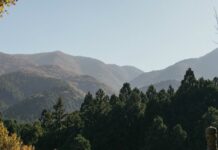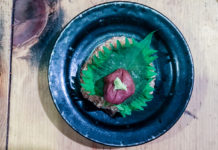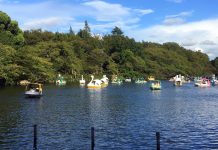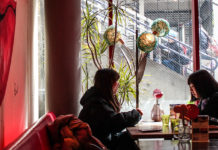The forested hills of Miyajima Island are full of beauty and wonder. Wild deer and tanuki forage for food in the underbrush while the native maple trees display a spectrum of colours throughout the seasons. And at Mount Misen’s base you’ll find another treasure, Daisho-in Temple. This is the headquarters of the Omuro branch of Shingon Buddhism and is where Buddhism originated on the island. It’s so well known that in 2006, the Dalai Lama made the trip to commemorate its 1,200 year anniversary. Here’s why you’ll love it…
Getting There
Part of Daisho-in’s attraction is the journey there. Once you’ve arrived on Miyajima, head along the shore towards Itsukushima Shrine. Then, continue past the shrine, following the gentle slope for around 5 minutes. Wander along the peaceful residential street, keeping your eye on the forested hill ahead.
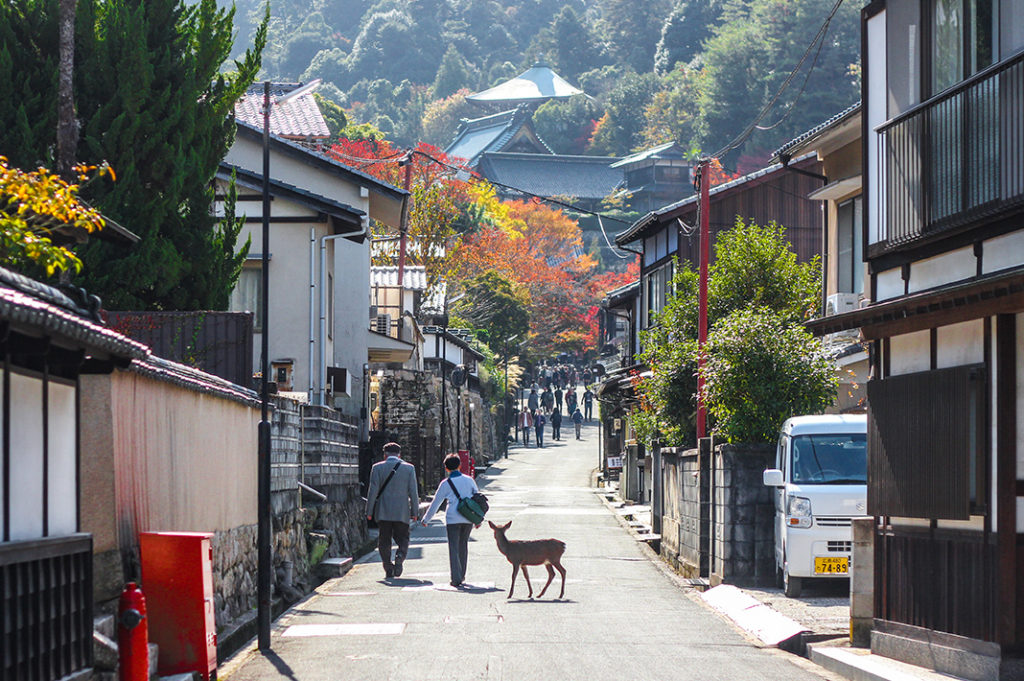
Niomon Gate
The official entrance to the temple is the Niomon Gate, surveyed by a pair of Nio (guardian king) statues. Often found at entrances to Buddhist temples, it is said that they protect the temple from evil spirits and evil doers. The gate itself is a gorgeous wooden structure so take a moment to appreciate the craftsmanship.
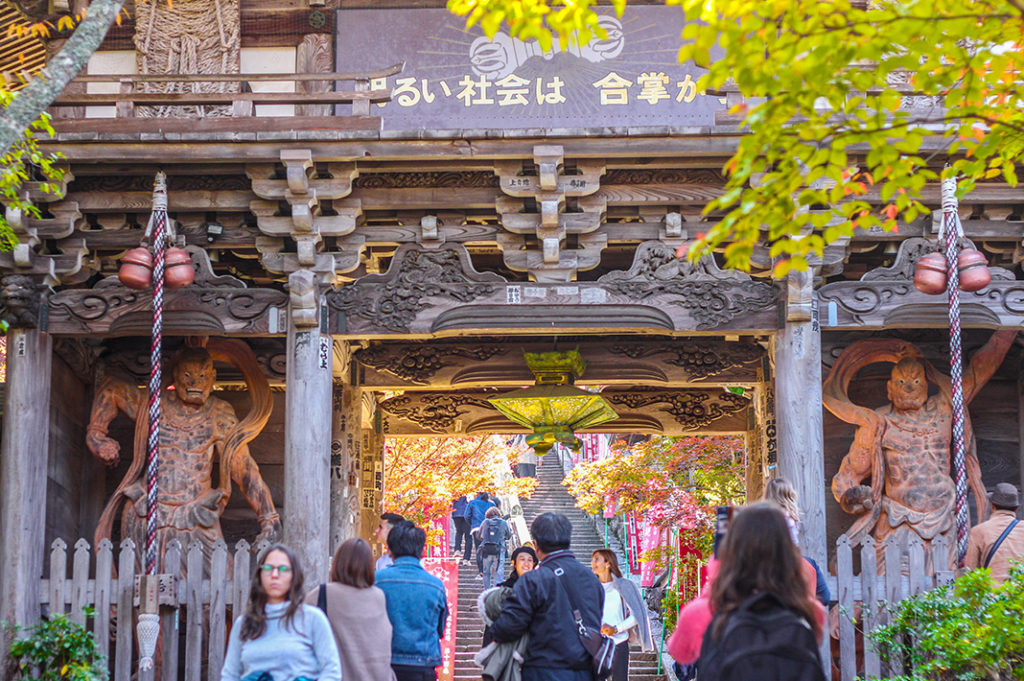
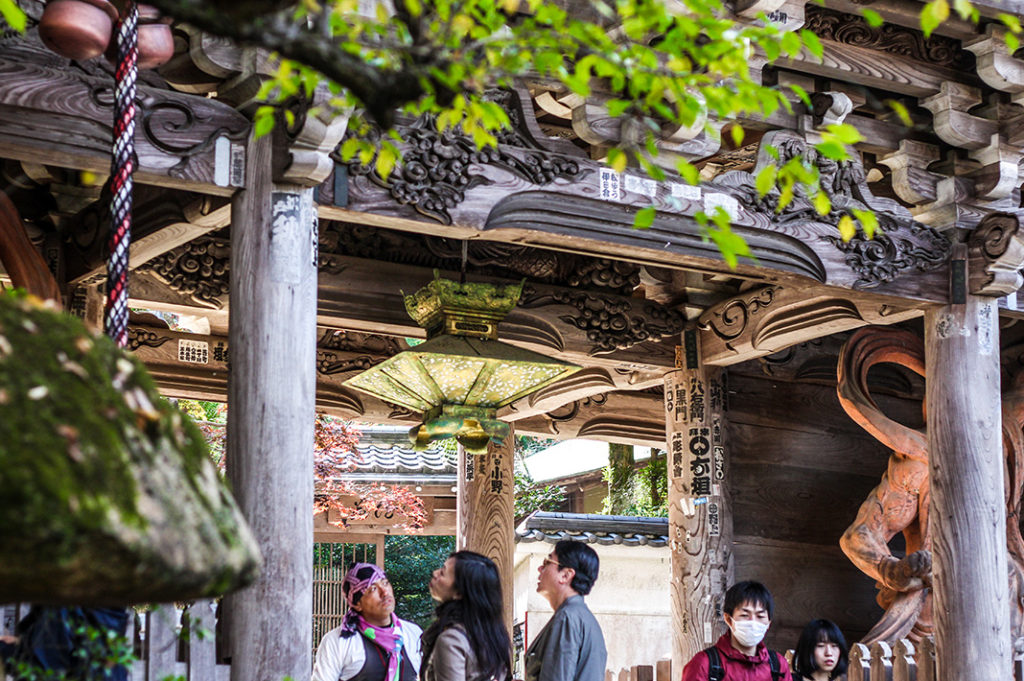
Ritual Staircase
Immediately inside the temple gate, you’ll spot a steep set of stairs which will take you up to the main hall area. Running up the center is what looks like a thick, golden handrail.
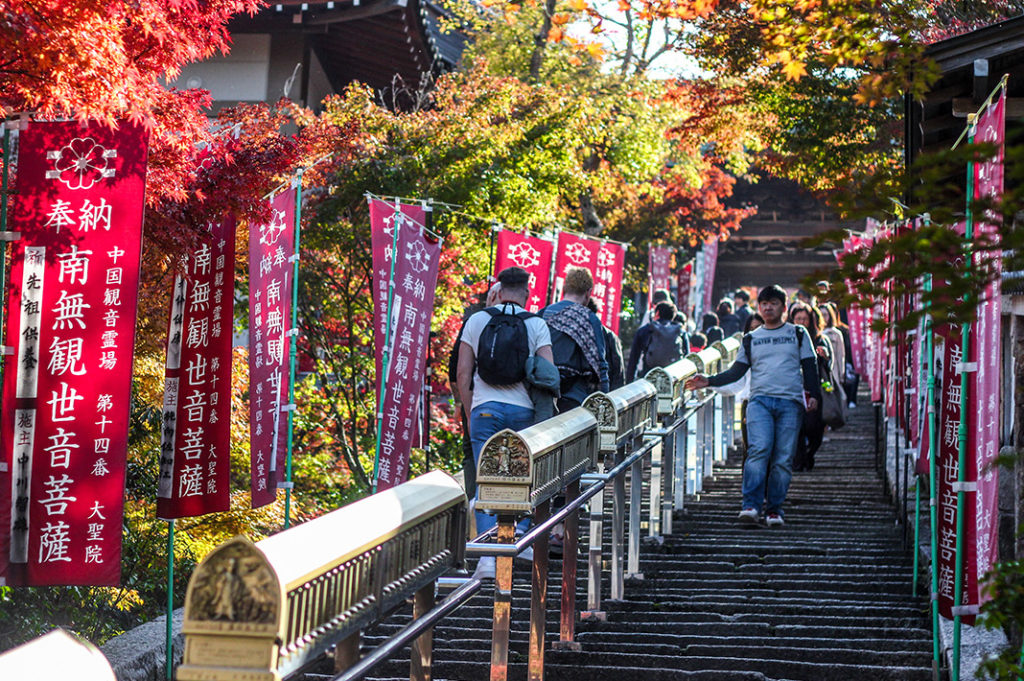
On closer inspection, you’ll see that instead of clutching the top, people are running their fingers along its side which appears to be made of spinning metal cylinders.
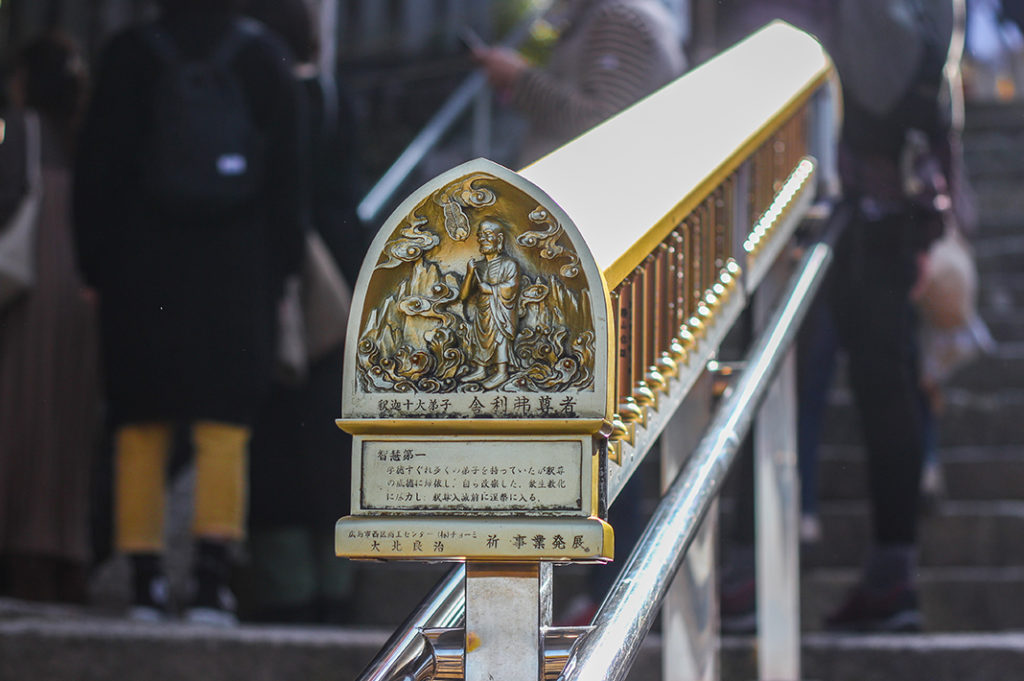
These are inscribed with the six hundred volumes of the Buddhist Dai-hannyakyo Scripture. It’s said that by spinning all the cylinders, you will receive blessings. There is also another set further up called the Mani prayer wheels.
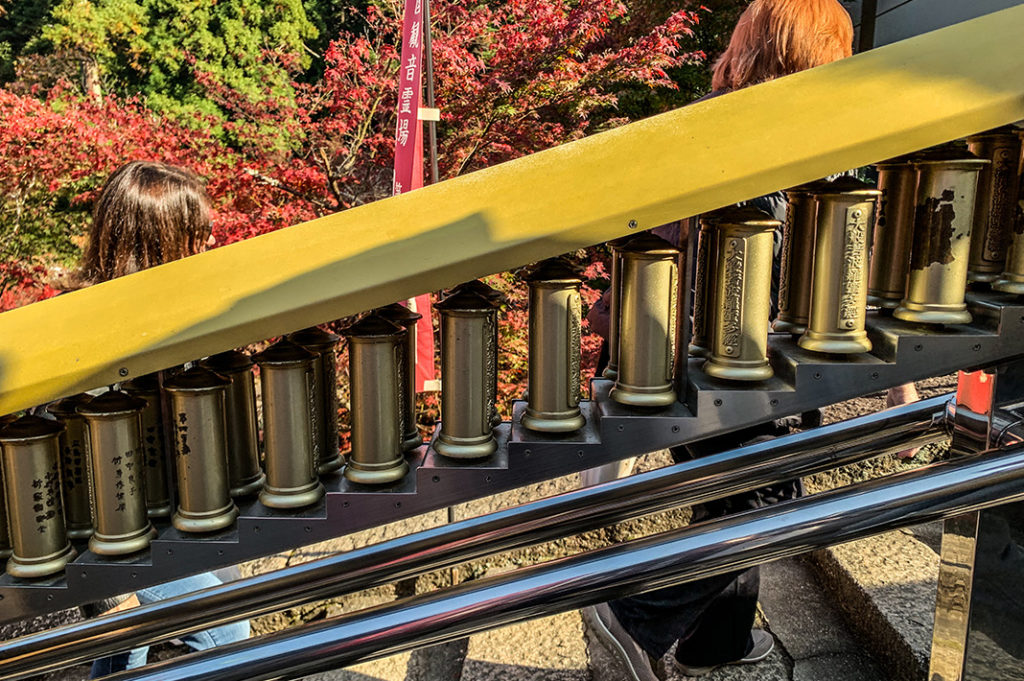
Also, near the beginning of the staircase, you’ll notice a small hexagonal tea house on the right. Run by the temple, the Rokkaku Sabo Tea Room is a perfect spot to relax and enjoy some perfectly brewed tea and snacks.
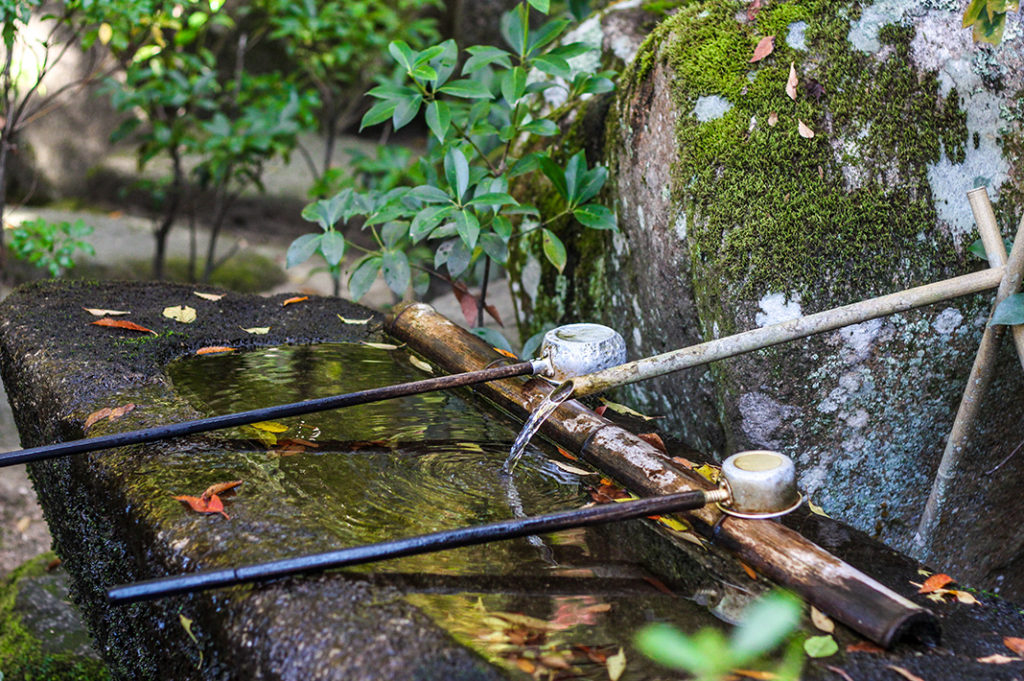
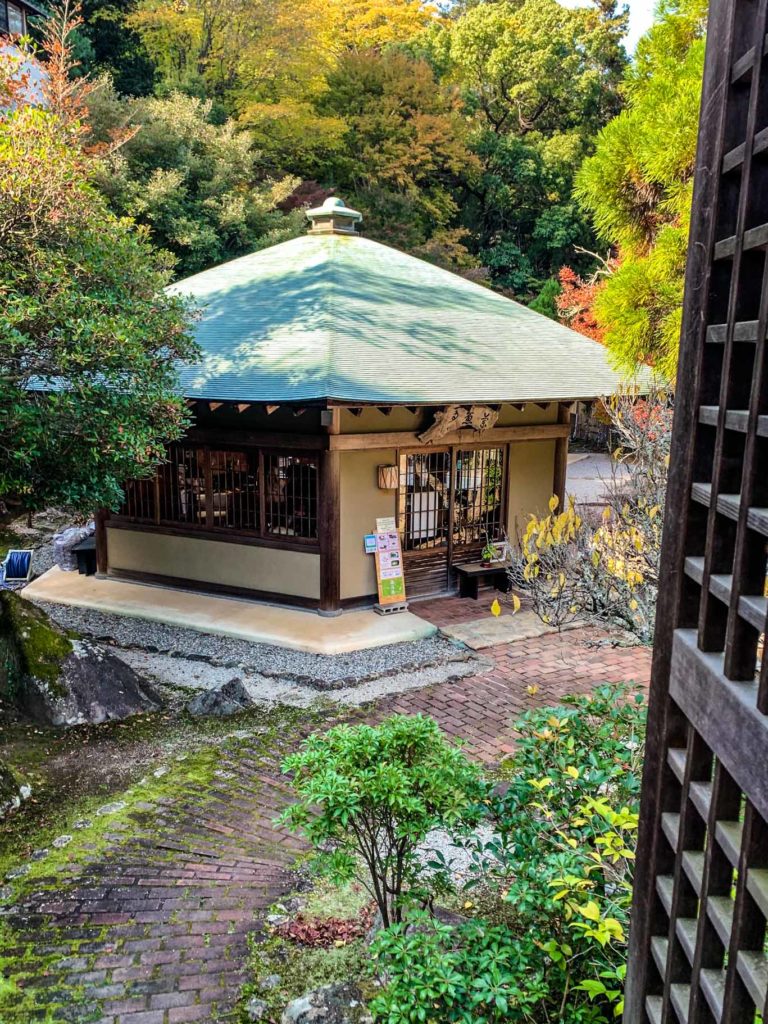
Tea House on the property
500 statues in knitted hats
If you take a left before the staircase, you’ll find a winding pathway flanked by hundreds of small statues on either side.
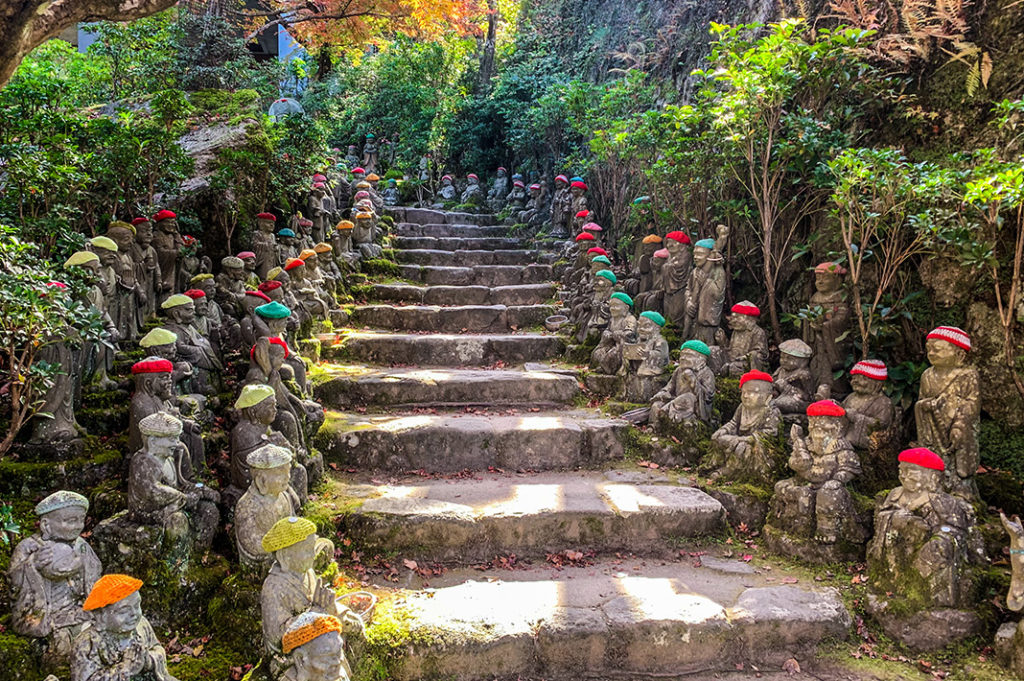
These are the 500 rakan, or first disciples of Buddha. Each one is uniquely carved with its own facial expressions.
Every year, locals and patrons knit hats and scarves for them—find out more in our detailed post about the statues here.
Daisho-in’s Bell
At the end of the statue-studded pathway, you’ll emerge beside a large bell which dates back around 500 years. This used to be the island’s timepiece, signalling morning, noon and night. Now when it rings, it signifies the start of prayer time. We joined a short queue to give it a resounding toll.
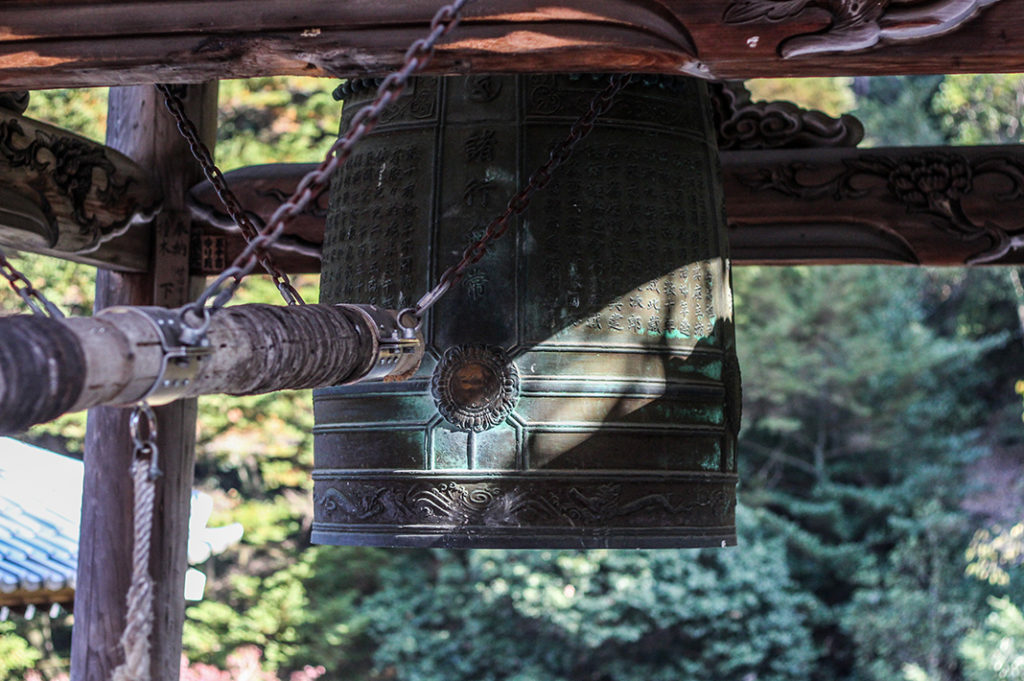
Beside the bell is a small bowl surrounded by smashed little clay balls. People try to throw these into the bowl for good luck.
Main Hall and Other Sights
At the top of the staircase, you’ll find yourself in an open clearing with even more buildings around. The large building on your right, Kannon do, contains many a treasure.
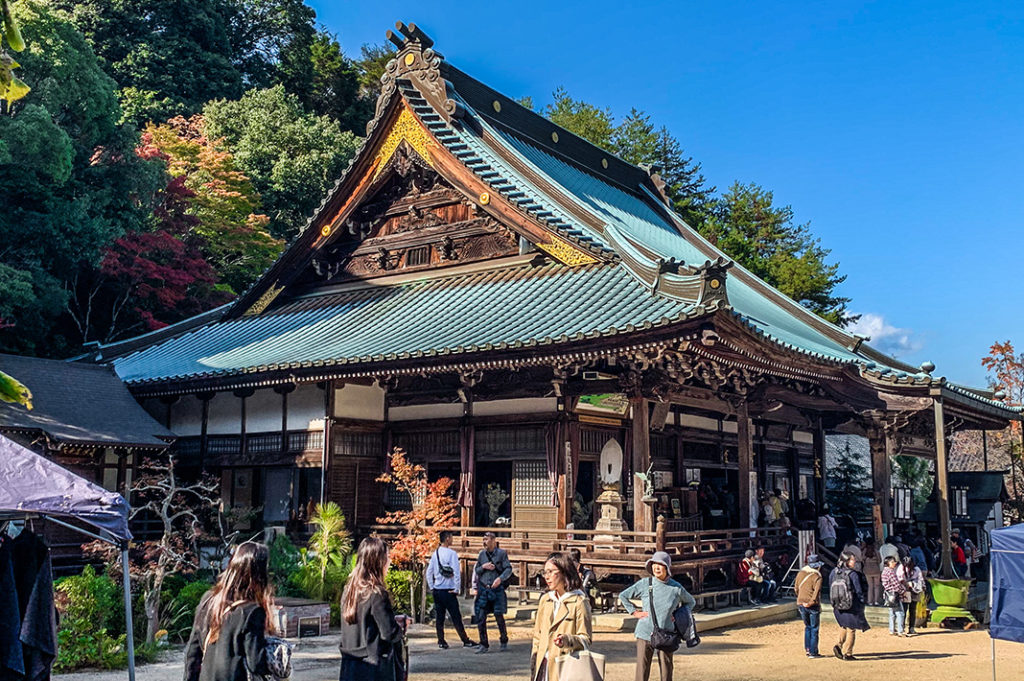
There’s the glittering eleven-faced statue of Bodhisattva and the enshrined Emperor Meiji. Perhaps most eye catching, though, is the gigantic mandala, intricately made from coloured sand by a visiting group of Tibetan monks.
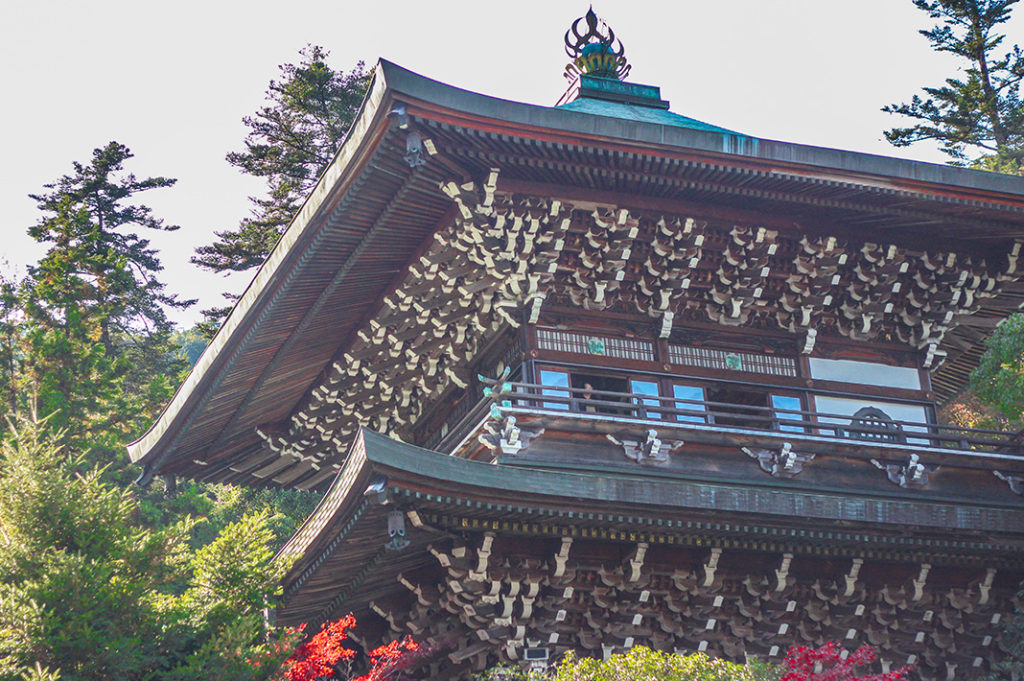
The Maniden Hall, with it’s pagoda-like double roof, houses one thousand Buddhist statues.
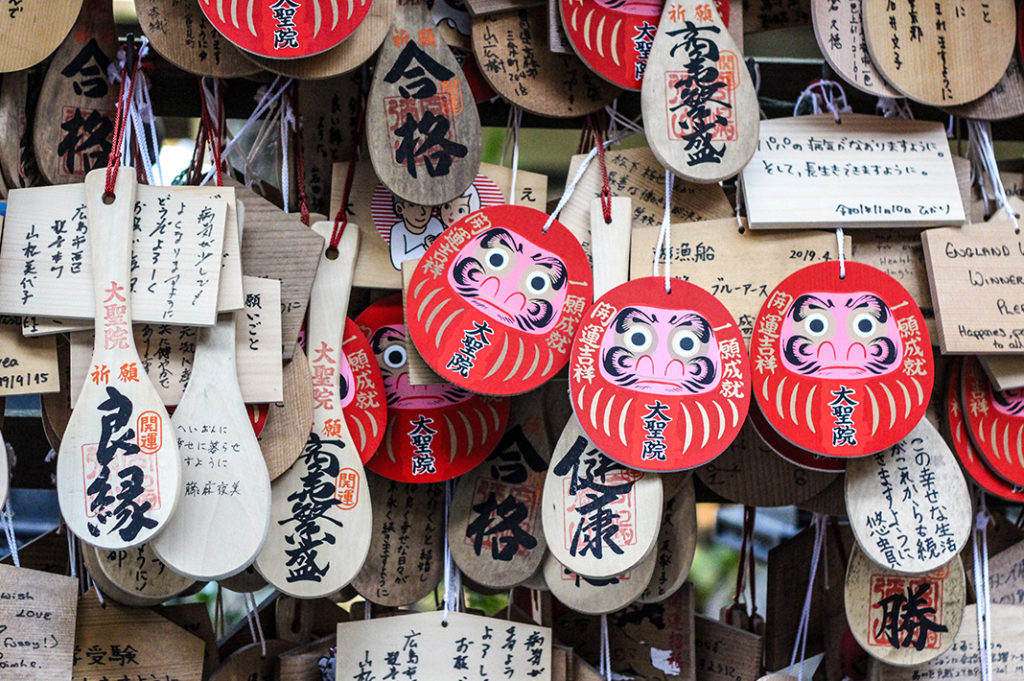
The Henjo Kutsu cave has a ceiling covered in lanterns and also houses eighty-eight Buddhist statues. These represent the eighty-eight temples of the Ohenro Pilgrimage in Shikoku. Unfortunately we were running late for our return ferry and didn’t have time to see everything, but take my word that there are so many exciting treasures to discover at Daisho-in Temple.
Once you’ve finished exploring Daisho-in, you can head back toward town, or, if you’re feeling up to it, hike to Mt. Misen’s summit in around 1.5 hours.
Name: Daisho-in Temple, Miyajima Island
Address: 210番地 Miyajima-cho, Hatsukaichi, Hiroshima 739-0592
Open: 8:00a.m. until 5:00p.m.
URL: https://daisho-in.com/
Post by Japan Journeys



